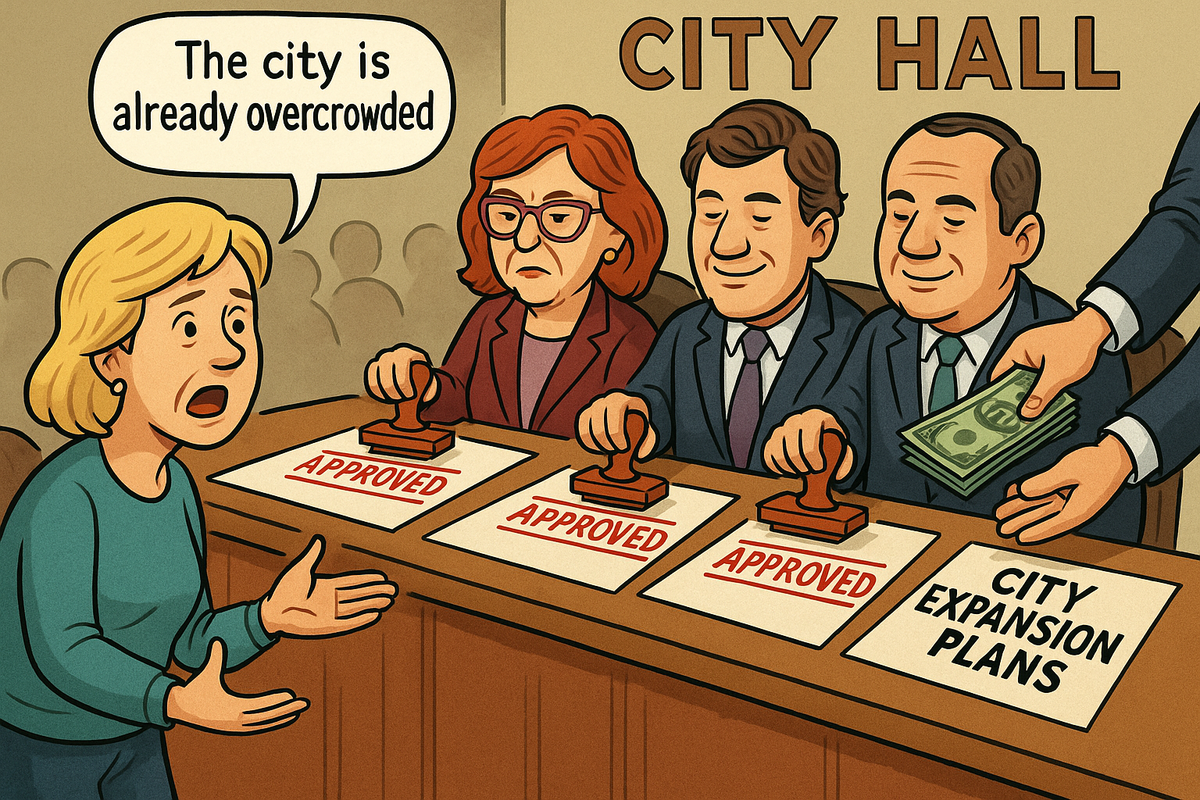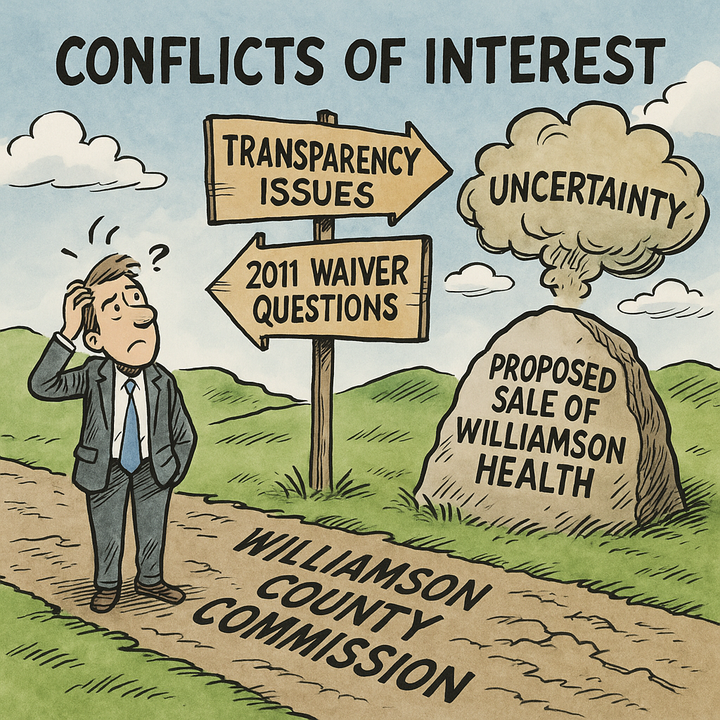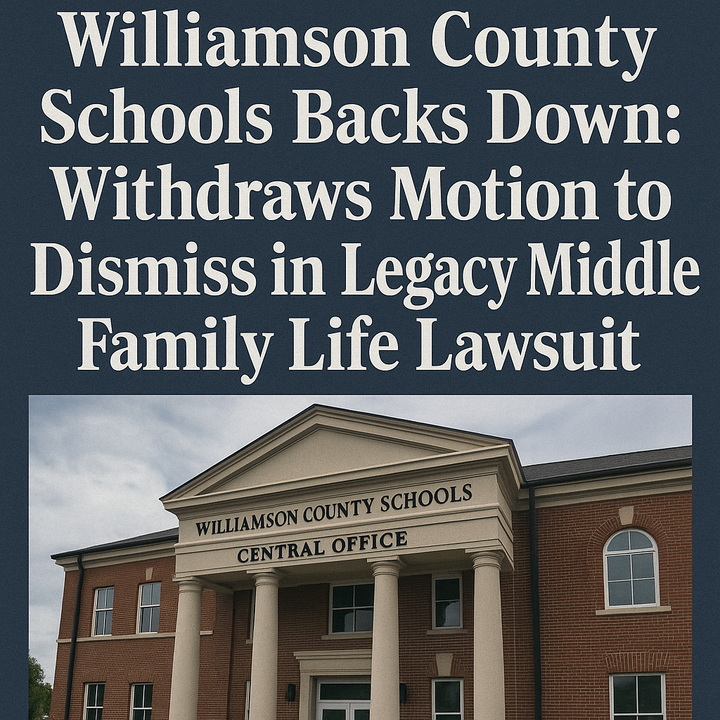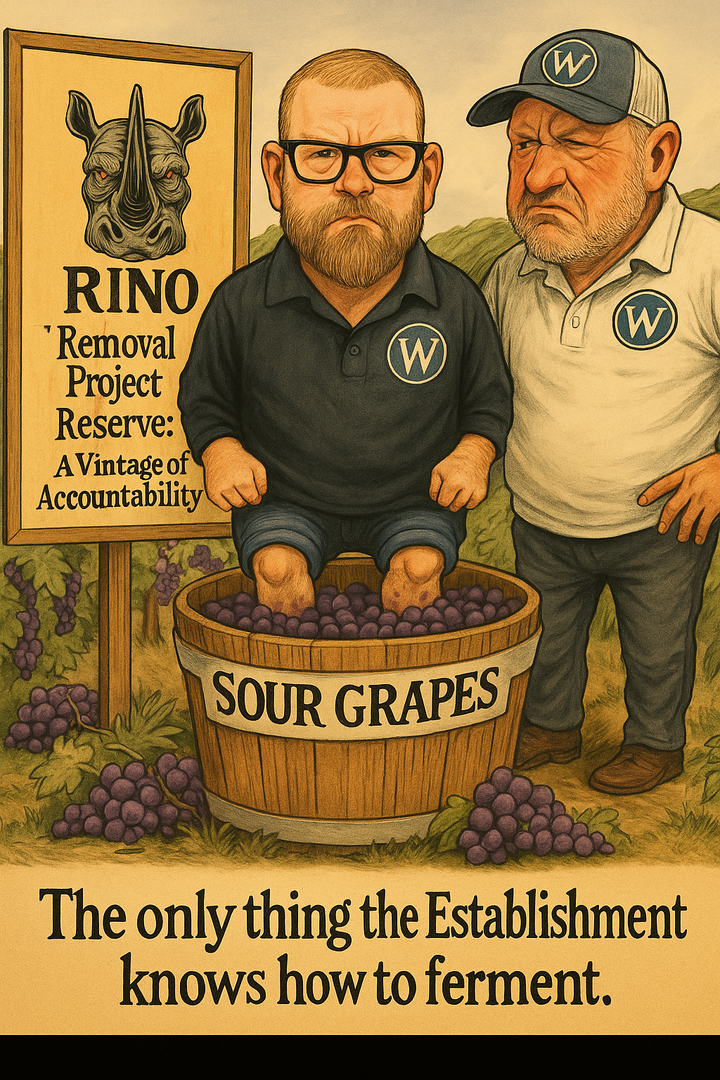Franklin’s election spotlights overdevelopment: challengers Erinn Watkins & Dr. Rodney Taylor vow to reject developer money and demand impact studies, opposing incumbents tied to big donors as residents face traffic, taxes, and strained infrastructure.
FRANKLIN, Tenn. — Overdevelopment is the defining issue in Franklin’s upcoming municipal election, where two challengers are taking on the city’s growth-at-all-costs mindset. Citizens have watched traffic gridlock worsen, infrastructure strain, and property taxes rise, while developers thrive. Now, the spotlight is on the Board of Mayor and Aldermen (BOMA), many of whom have accepted thousands of dollars in campaign contributions from the very developers driving the problem.
Erinn Watkins, candidate for Ward 2, and Dr. Rodney Taylor, candidate for Ward 4, announced they will refuse campaign contributions from developers and PACs, drawing a sharp line between themselves and incumbents. According to campaign finance reports, Alderman Matt Brown (Ward 2) and Alderman Patrick Baggett (Ward 4) accepted $9,645 and $4,900 respectively from developers in just the second quarter of 2025. Unopposed incumbents Bev Burger (Ward 1) and Jason Potts (Ward 3) also took in $10,300 and $8,650.
While those numbers may appear small in the broader landscape of American politics — where tens of thousands, even millions, are tossed around like beads at a Mardi Gras parade — the context here matters. Franklin’s alderman races are small, local contests, typically run on modest budgets of only a few thousand dollars. In that setting, developer donations of five, eight, or ten thousand dollars carry outsized influence. What looks negligible compared to congressional fundraising can, at the municipal level, become decisive.
“Elected officials should avoid even the appearance of potential conflicts of interest,” said Taylor. “It’s obvious that both Alderman Brown and Alderman Baggett and their colleagues have approved a lot of building throughout Franklin, which has resulted in a financial bonanza for developers but at a high cost to the quality of life for those of us who live here.”

Franklin’s Growth by the Numbers
The City of Franklin’s 2024 Development Report illustrates just how rapid the expansion has been. In 1990, Franklin’s population stood at 20,098. By 2024, it had ballooned to 92,230 — more than quadrupling in a single generation. For many residents, that growth has not translated into better quality of life, but into clogged roadways, longer school lines, and higher property tax bills.
Watkins said the frustration is clear from conversations with voters. “In talking with residents throughout my ward, a majority are exasperated with the almost constant traffic jams and the unending growth that has dramatically outpaced the needed underlying infrastructure. Growth has to be balanced with thorough impact studies before approval. That’s not happening with the current BOMA members and mayor.”
Comprehensive Impact Studies — A Common-Sense Step
Watkins and Taylor are calling for mandatory comprehensive development impact studies for every new project. These would analyze effects on traffic, school capacity, utilities, emergency response times, and property taxes. Many cities across the U.S. already require such studies before projects are approved. Franklin currently does not.
Watkins also highlighted the problem of developers converting designated office space into apartment complexes. “Office space has no impact on schools, but apartments do. They also affect water, sewer, and utilities. These conversions are being approved without adequate scrutiny.”
Both candidates say that if Franklin wants to preserve its character, it may even be necessary to consider a short-term moratorium on new development until infrastructure can catch up.
City Hall and Costly Decisions
Beyond development approvals, BOMA’s recent decision to move forward with a $100+ million plan for a new City Hall building has also raised eyebrows. The facility will be rebuilt on the same site as the old one — at a staggering $1,400 per square foot — instead of on a cheaper, city-owned parcel across from the police station. That decision, supported by Aldermen Burger, Brown, Potts, Baggett, and Mayor Ken Moore, has already contributed to a tax increase, with more likely to follow.
For Watkins and Taylor, the decision is emblematic of a BOMA more attuned to spending and development interests than to taxpayers.
What’s at Stake in 2025
At the heart of this election is a question many Franklin residents are asking: how much growth is too much growth?
“Better understanding how developments like Ovation or Aureum will affect the city before a project is approved will help the city implement the necessary infrastructure so residents don’t bear the burden,” Taylor said. “Residents are asking just how much growth is enough before we lose the beauty and serenity of our city. I agree with them.”
Voters in Wards 2 and 4 will have the chance to weigh in when early voting begins October 8, with Election Day set for October 28. For many, this election may be the only opportunity to slow down what feels like runaway growth — and to send a message that Franklin should prioritize its people over its developers.
TruthWire has reached out to all four of the current members of BOMA represented on the graph asking for their response.
TruthWire has reached out to all four of the current members of BOMA represented on the graph asking for their response.
As of publishing, only Patrick Baggett, Ward 4 has responded:
“I have set a standard for not taking money from those that have disclosed they will have projects coming before BOMA over the next four years. Even without this, no contribution of any amount would influence my vote on any project or issue. The integrity of the work I do on BOMA. I appreciate all financial contributions from those who want to support a candidate that is a pragmatic problem solver who is not influenced by any special interests other than what is best for the residents of Franklin. It is a shame for my opponent to mislead voters into conjecture about my objectivity when we have so many major issues that should be the focus of this campaign. This is not the kind of politics we need here in Franklin. I have a record of voting for and against projects and issues and the only guide has been my desire to represent the residents of Ward 4 and the long-term health of our City. That won’t change during the next four years.”
If you support what we do, please consider donating a gift in order to sustain free, independent, and TRULY CONSERVATIVE media that is focused on Middle Tennessee and BEYOND!





Comments ()